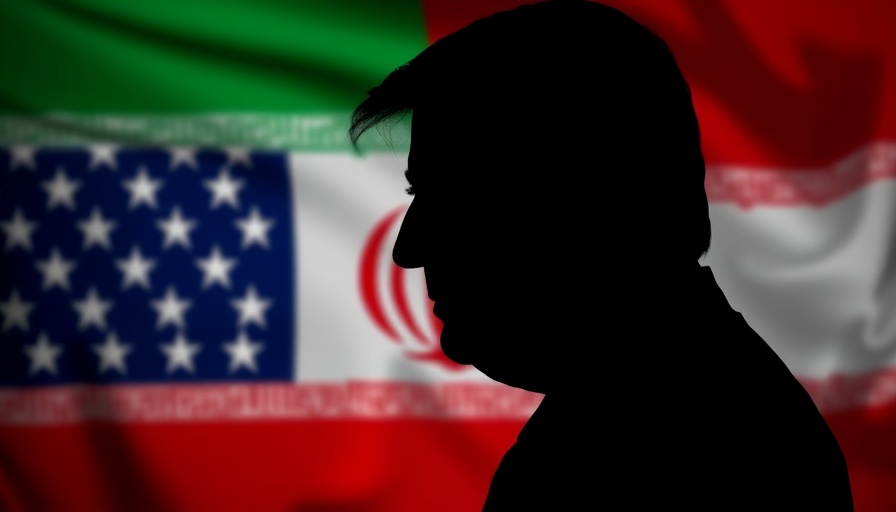
Trump's Threat: A New Chapter in U.S.-Iran Dynamics
In a tense and uncertain geopolitical climate, U.S. President Donald Trump has issued stark warnings to Iran regarding its nuclear program. Speaking to NBC News, he asserted that if Iran fails to come to the negotiation table, the U.S. would resort to bombing—"the likes of which they have never seen before." These aggressive remarks come after Iran’s recent rejection of direct negotiations, signaling a potential escalation in an already fraught relationship between the two nations.
A Controversial Approach to Diplomacy
Trump's rhetoric is aligned with a broader pattern of using threats as leverage in diplomacy. His mention of "secondary tariffs" echoes past strategies aimed at pressuring Tehran into compliance regarding nuclear regulations. By drawing parallels to actions he took years ago, Trump underscores a familiar tactic: intertwining economic and military strategies to achieve political aims. However, the effectiveness of such an approach remains hotly debated.
Iran's Stance on Negotiations
Tehran’s rejection of the U.S. overture reflects a hardened stance against what it perceives as a maximum pressure campaign from Washington. Iranian Foreign Minister Masoud Pezeshkian stated unequivocally that direct dialogue while under military threat is untenable. This narrative reinforces Iran's claim to sovereignty and its right to self-determination amidst international pressures.
The Historical Context of U.S.-Iran Relations
Understanding the backdrop of U.S.-Iran relations is critical in deciphering the implications of Trump's statements. Following the 1979 Iranian Revolution, diplomatic ties were severed, leaving decades of conflict and mistrust. The recent nuclear agreement—a pivotal moment in reducing tensions—now hangs in the balance as the current administration appears intent on radically shifting the dynamics once more.
Implications for Global Security and Markets
The ramifications of this geopolitical tug-of-war extend beyond the nations directly involved. Potential military actions can destabilize the volatile Middle Eastern region, prompting fluctuations in markets sensitive to geopolitical tensions. Investment strategies, particularly those focused on commodities and energy, may need to adjust in response to shifting perceptions of risk in light of these developments.
Investment Strategies Amid Global Uncertainty
The uncertainty surrounding U.S.-Iran relations poses significant challenges for investors. Portfolio diversification and inflation protection investments become paramount, especially as the threat of military action leads to volatility in global markets. Investors may want to consider sectors less susceptible to geopolitical shocks, such as healthcare or sustainable investing, as they look for resilience during unpredictable times.
Future Predictions: Energy Markets on Edge
As tensions heighten, energy markets could face sharp price increases, particularly in oil and gas. Investors should monitor commodities trading closely, as military engagements often lead to disruptions in supply, influencing pricing considerably. Geopolitical risk assessments will become vital tools in navigating these uncertain waters.
Conclusion: Staying Informed
As the situation unfolding between the U.S. and Iran evolves, staying informed will be crucial for those engaged in investment and finance. Monitoring developments may provide critical insights into market movements while also spotlighting opportunities in alternative investments that carry less risk exposure under the current circumstances.
For more insights on navigating investment during market volatility, equip yourself with the right tools and strategies today to safeguard your portfolio. By being proactive, you can position yourself to better handle shifting tides in the global landscape.
 Add Row
Add Row  Add
Add 



Write A Comment